This is not my first trip to Syria; I have relatives living in the north of the country, in the coastal city of Lattakia. One thing I cannot argue about Syria in general is the beauty of this country, with its different elevations; green vast areas to the north stretching to the border with Turkey and along the coast line; huge desert to the east that reaches the western borders with Iraq, and the various hills and rocky areas to the south of the capital Damascus.
In addition, no one can ignore how this country is one of the richest countries with its historic heritage spread in different areas and provinces. However, travelers can notice the economic hardship, which made it difficult for the country to rise among the most top tourist places in the world. Economic difficulties in the country obviously made its painful impact on its people, especially on this trip, this time, with prices risen triple in a very short time. There is an obvious gap between the poor and the rich (look at the cars on the streets and the models people drive). Compare this one to previous visits I could see improvements in some aspects of life for the ordinary people, but the pace of such improvement is extremely slow. The streets of Lattakia are cleaner than before; Police men are more into their work in organizing traffic on the streets, especially during traffic jams - different from the past experiences when a policeman stops you for no reason and end up putting some money in his hand while arguing to get rid of him. Ah, I almost forget, the police force there is very serious on stopping car drivers and fine them if they were found without seat belts on; a lot of housing projects with very beautiful design have been built; ATM machines in cities became more common, maybe not for all people, but I saw people queuing to get their money from one machine on one of the main streets in Lattakia. However, there is one thing that did not change since my first visit to this city: the look on the faces of salesmen when a stranger like me enters a shop. It requires some long 10 minutes to finally make that salesman/woman smile and give an impression of loosing tension! This became a common thing to me, it bothered me before, especially that there are some shop owners or workers or salesmen who really need some lessons on how to do marketing and how to deal with the client or the customer. Yet, this doesn’t mean that people there are not friendly; on the contrary, they are very friendly and help foreigners when they see one in need.
Anyway, upon arrival I didn’t stay in the capital Damascus except for a couple of hours, visited some friends and proceeded to Lattakia at around 10PM – arrived around 2AM there. This time I decided to rent a car and not depend on taxis while I am in the city, or call the usual taxi agency to take me to other places. I rented a Peugeot 206, which I think it was an Iranian version of that model in the market. I proved those people wrong, those who told me that it is impossible for a person who lives in Europe to drive in Syria. It was indeed challenging, though, in a sense, learning the “snake-method” of driving through cars like the taxi drivers, for example: there is no discipline with road-lanes, suddenly you notice a small yellow taxi (mostly are two cylindered-motors Daewoo model) slowly like a snake moving through in the middle and cut the street to the other lane. Traffic jam in the different main areas in the city of course is horrible, and when this happen some chaotic symphony starts; played by drivers blowing their cars horns from all directions.
Religion is irrelevant in Syria, not meaning in the negative sense of the word, but Syria is free from committing its people into complying with the rules of the majority i.e. Muslims. I heard that people get jailed in United Arab Emirates if they were caught smoking in their cars during Ramadan! This was not the case in Syria. I could see Syria like “old” Iraq regarding the diversity of its population; consists of many and many ethnic and religious groups. In Lattakia and its surroundings, there are the major Sunni groups, there is also a big Christian community located in certain neighborhoods, such as “The Americani” neighborhood (very beautiful neighborhood). There are also other religious groups, like the Druz, al Murshediyah (link in Arabic), and the Alawyeen communities – the latter compose the majority of the population living in villages and little towns surrounding Lattakia and their presence stretches further to the north of the country and across the borders inside Turkey. For that reason, one can see when going out those who wear traditional custom, such as men with the turban or the typical Shami large trousers, and the opposite to that can also be observed: there are those who are obsessed with the latest hype in fashion and mode, such as girls wearing 12cm high heel shoes and tight jeans. I was delighted to celebrate the holy month of Ramadan while I was there. However, I was astonished to find out that there were a number of shops open in the main market, but I was more surprised to see restaurants open and people can drink or eat (or smoking a cigarette) during the day. Not all the shops are open in Ramadan, though, but the peak in the market usually begins after the Iftar (sunset time) where walking or driving around becomes almost extremely difficult.
Another thing NO one can argue about Syria is the Food, especially starters (or what is called Mezza), such as Tabouleh, Homous, Kibbe, Babaghanoush, Kibbe Nayye, Shanklish, Fattoush, Soujouk …etc Still, all the above would not be compare to the delicious mixed grills they have in their restaurants. By the way, I never noticed that Pepsi became available until this visit to Syria, I might be wrong, but I remember that only local-soft drinks allowed to be sold in shops. In addition, I was surprised to see Pepsi became an official sponsor of a number of local TV shows.
Speaking of TV and the media, to me it was more than obvious the level of bad relations between Syria and Saudi Arabia has reached (especially on private Syrian channels like Dunya TV). That was one direction the media is focusing on daily. Another focus by the media is something regularly been taken care of: the relationship with Lebanon. I was in Syria when French president, Nicolas Sarkozy, visited the country, and how the media kept on for days full coverage on every event and every aspect of that visit – I was surprised, though, and still is, when I didn’t see the Syrian president receiving his guest at Damascus airport. Instead it was the Syrian foreign minister, Walid al-Muallem who was waiting for the French president at the end of the airplane-stairs. Speaking of the media leads to talk about the internet: the Internet in Syria is censored heavily by the government. Internet café is the only place where I could get reasonable internet speed. These internet café is not limited to boys or men only, I have been to internet café’s where young girls and women either browsing the World Wide Web, or talking to their relatives using mic and webcams, or search and apply for jobs. By the way, there are internet services for home users available and offered by the main telecommunication companies over there, but it is very expensive for ordinary people apart from the fact that it is extremely slow and not reliable.
Like on every visit, I won’t let a chance without going to one of my favorite places in Syria, Slenfeh. It is a tourist location, approximately 45 minutes drive north of Lattakia. Some considered it as the highest location in all Syria where nature and fun are combined together. The tourist complexes over there did not change that much since last visit, but Slenfeh is expanding rapidly because of the new villas and vacation-apartments been built in different places on the edges of the mountains there. Many people go to this place because many consider it as an escape pod from the bloody heat and humidity in Lattakia. The prices of goods and costs of food at restaurants in Slenfeh are much higher than in any other place – funny that there are much cheaper restaurants on the outskirts of Slenfeh!
That trip provided me with many aspects of relaxation: I needed change; those who know me personally can confirm how much a hard working person like me deserved some time off from everything related to my daily life. I managed to have long hours sleep, very long hours – I can’t recall when was the last time in my life I did sleep for so long. In addition, going out in the evening and stay late at café’s was also fun, drinking Arabic coffee while modern and classic Arabic is playing in the background – some of café’s and restaurants owners took advantage of some TV shows or movies by putting pictures and posters of their favorite celebrities
I wondered a number of times if it was worth staying longer in Syria, not thinking of how many days I can take days off from work, but I thought that the time I spent there was justified. I came back from Syria three weeks ago. I got a cold immediately one day after arrival, I am recovering, but very slow, I think it also has to do with the change in weather here? Well, maybe this is true, especially that summer did not visit the low lands this year.
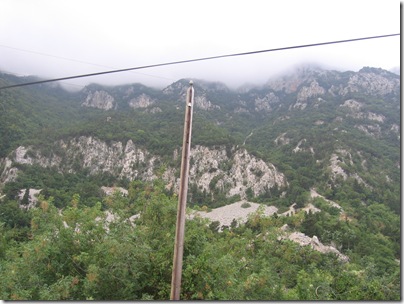

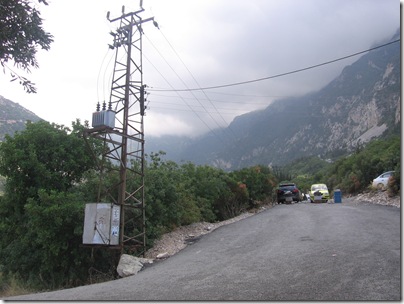
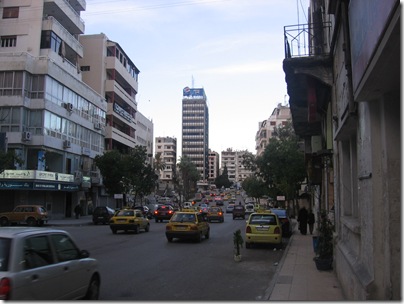
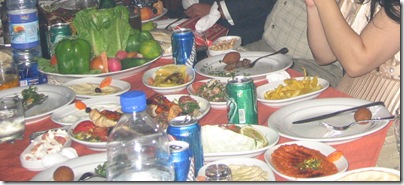
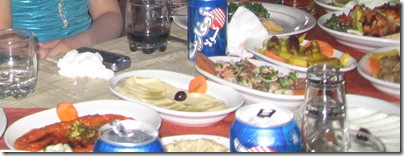

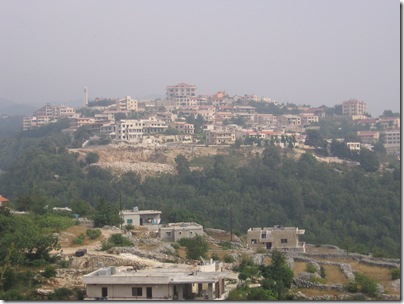
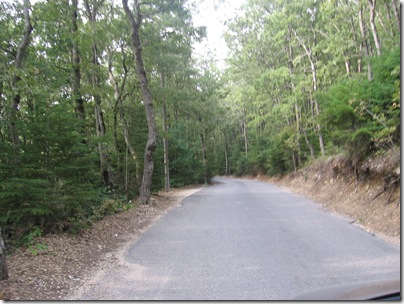
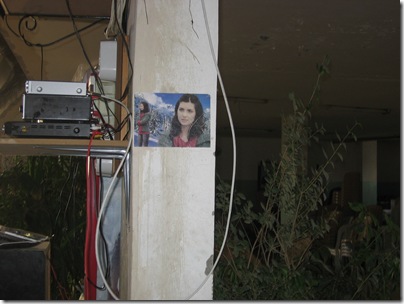



1 comment:
That was a beautiful post Mix, and far too much for me to comment on. Syria sounds a gorgeous place and reminds me how young my own country is.
You are lucky to visit these places, I will just have to be content to view it through your eyes...and from your very descriptive writing that is not hard... you are brave driving in a foreign country and by the sounds it is not the easiest to do in Syria...glad you had a much needed break... not good you got ill on return though :(
I loved this post..ta for sharing your adventure
Post a Comment